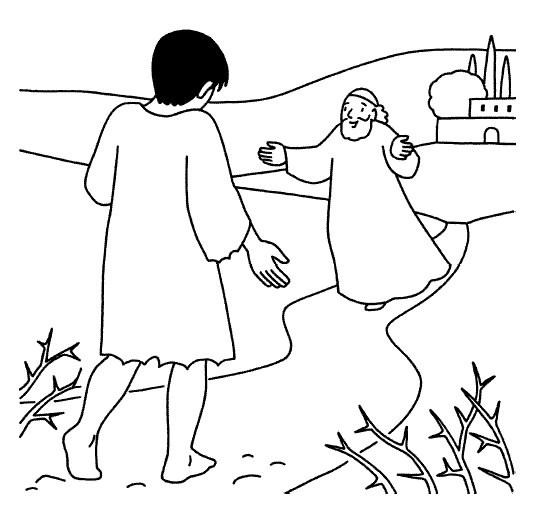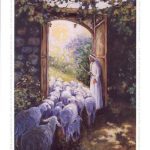Master, which is the great commandment in the law? Jesus said unto him, Thou shalt love the Lord thy God with all thy heart, and with all thy soul, and with all thy mind. This is the first and great commandment. And the second is like unto it, Thou shalt love thy neighbour as thyself – (Matthew 22: 36-40).
Jesus, after a series of verbal battles and disputations with Sadducees, lawyers, chief priests, elders, scribes, Pharisees, and their disciples, a legal expert, an interpreter of the law asks Jesus one last question to test him, “Which commandment in the law is greatest?” (22:36). Jesus answered wisely in confirmation of His teaching authority and inspired than His adversaries, ‘Jesus said unto him, Thou shalt love the Lord thy God with all thy heart, and with all thy soul, and with all thy mind. This is the first and great commandment.’ Loving God ‘with all thy heart’ means that he is the principal source and object of our greatest desires and passions; the core of our affection must be centred on Him.
The warning is against corrupt self-love and the root of the greatest sins, and it must be put off and mortified. Loving God with all our hearts means that we are completely faithful and devoted to Him and that His purposes direct every area of our lives. God is love. Charles Wesley better expresses the storyline of God’s love in the Scriptures in one of his hymns.
Loving God with all our hearts resonates with one of Wesley’s hymns, ‘Love divine, all loves excelling.’ Love Divine first appeared in 1747. Methodist hymns remind us not only of the story and history of Methodism but of Christian theology, history, mission, spirituality, and purpose of existence – spreading scriptural holiness across the world as our parish. “Love Divine; All Loves Excelling”, as one of Wesley’s greatest hymns, is a prayer — a prayer to Jesus, who is “Love Divine, All Loves Excelling.” It is in Jesus Christ that all other loves excel. Loving God as the first commandment is to invite Jesus to make His dwelling in us — to visit us with his salvation — to enter our hearts. Loving God, as the first commandment, invites Jesus to take away our love of sinning — to set our hearts at liberty. It concludes by asking Jesus to finish his new creation (we are his new creation) so that we might be pure and spotless — perfectly restored — ready for heaven.
Love Divine; All Loves Excelling as a meditation on the love of God and the power of that love to redeem and shape our further expression of love. The first verse speaks of the mercy and compassion of Jesus. The second verse expresses a longing for the rest we can find in God and the change of heart we can receive. The third verse sings of the glory of the second coming of Jesus, and the fourth verse sings of the joy we will experience in the life to come.
Wesley expressed the culmination of adhering to the first commandment in stanza four of the hymn with the phrase, “changed from glory into glory.” Loving God, that is love divine, all loves excelling till the day in heaven when “we take our place, till we cast our crowns before thee, lost in wonder, love, and praise” (2 Cor 3:18). Let us prayerfully sing with Wesley together:
Love divine, all loves excelling,
Joy of heav’n to earth come down,
Fix in us Thy humble dwelling;
All Thy faithful mercies crown!
Jesus, Thou art all compassion;
Pure, unbounded love Thou art.
Visit us with Thy salvation;
Enter every trembling heart.
Breathe, O breathe Thy loving Spirit
Into every troubled breast.
Let us all in Thee inherit,
Let us find the promised rest.
Take away our love of sinning;
Alpha and Omega be!
End of faith as its beginning,
Set our hearts at liberty.
Come, Almighty to delier;
Let us all Thy life receive.
Suddenly return and never,
Nevermore Thy temples leave!
Thee we would be always blessing,
Serve Thee as Thy hosts above;
Pray and praise Thee without ceasing,
Glory in Thy perfect love.
Finish, then, Thy new creation;
Pure and spotless let us be.
Let us see Thy great salvation;
Perfectly restored in Thee:
Changed from glory into glory,
Till in heav’n we take our place,
Till we cast our crowns before Thee,
Lost in wonder, love, and praise!











Recent Comments